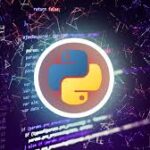Engineer’s Playground
Summary
The Digital Electronics course serves as a comprehensive introduction to the fundamental concepts and applications of digital technology. Designed for beginners, it aims to provide a solid foundation in digital electronics, which is crucial for understanding the technological landscape of modern computing and electronic devices. This course covers a wide range of topics, from basic principles to advanced architectures, ensuring that learners gain a thorough understanding of digital systems and their functionality.
Key Topics Covered
- Science of Digital Electronics: The course begins with the principles that underlie digital electronics, explaining how they evolved from vacuum tubes to transistors and integrated circuits (ICs). This historical perspective highlights the rapid advancements that have made computing devices smaller, faster, and more powerful.
- Applications of Digital Electronics: Digital electronics is pervasive in everyday devices, from household appliances to complex industrial systems. The course emphasizes how these systems operate based on digital logic, showcasing applications in the Internet of Things (IoT), communication, and automation.
- Boolean Algebra and Logic Gates: Fundamental to digital electronics, Boolean algebra is introduced as a mathematical framework for designing digital circuits. The course covers various logic gates (AND, OR, NOT, etc.) and their roles in building complex logic functions.
- Karnaugh Map Simplification: Students will learn to simplify Boolean expressions using Karnaugh maps, a vital skill for optimizing digital circuits and minimizing hardware requirements.
- DC and AC Networks: Understanding direct current (DC) and alternating current (AC) networks is essential for grasping how digital circuits interface with various electrical systems. The course provides foundational knowledge in these areas.
- Logic Design and Computer Organization: The course dives into the design of digital logic systems, including flip-flops and memory elements. A strong emphasis is placed on computer organization, detailing how CPUs process instructions and manage data.
- Advanced Computer Architecture: Learners explore advanced topics such as memory hierarchies, cache memory, and the intricacies of CPU architectures. This segment equips students with insights into the performance optimization of computer systems.
- Sequential Circuits and Memory: An introduction to memory types such as RAM (Random Access Memory), ROM (Read-Only Memory), and cache memory is provided, illustrating their significance in data storage and retrieval in digital systems.
- Basics of Digital and Analog Communication: The course covers the fundamental principles of communication systems, differentiating between digital and analog signals and their respective applications.
- Microprocessors and 8086 Architecture: A focused study on microprocessors, including a detailed examination of the 8086 architecture, prepares students for understanding how software interacts with hardware.
Learning Approach
The course is structured to ensure a gradual learning curve, starting from the basics and progressively advancing to more complex concepts. Each section includes:
- Section-wise Notes: Summarized notes provide essential information, making it easier for students to review and retain knowledge.
- Short Quizzes: Interactive quizzes at the end of each section enable students to assess their understanding and readiness to progress.
- Community Support: A Q&A platform allows learners to engage with peers and the instructor, fostering an interactive and supportive learning environment.
Requirements for Success
To make the most of this course, students need a reliable internet connection and a willingness to learn new concepts. The course is designed with beginners in mind, ensuring that even those with no prior knowledge can successfully grasp the material.
Conclusion
This Digital Electronics course offers a robust starting point for anyone interested in the field of electronics and computing. By understanding the intersection of mathematics, technology, and science in digital systems, students will be better equipped to navigate the complexities of modern electronic devices. With its comprehensive curriculum and interactive approach, this course promises to transform learners into informed individuals who can appreciate the technology that shapes our daily lives.
What you’ll learn
-
Science of Digital electronics
-
Applications of Digital electronics
-
Boolean Algebra
-
Logic Gates
-
Various electronic machines/devices/instruments
-
Karnaugh map simplification
-
DC Networks
-
AC Networks
-
Logic design
-
Computer Organization
-
Advanced Computer architecture
-
Sequential Circuits (intro to memory)
-
RAM, ROM, CACHE MEMORY
-
CPU memory management
-
Basics of Digital & Analogue communication
-
Microprocessors
-
8086 architecture
Requirements
-
Internet connection
-
Willingness to learn new concepts
Description
Welcome to Computer Engineering && Electronics (Digital electronics course)
This Course is centric to Digital world., how it progressed at tremendous rate the size of computers which was a house itself., fits into your palm.
The progress of Digital electronics is important to learn because this is the platform for all the software development, codes & algorithms. The instructions given to the machine is actually processed by CPU/GPU the way it happen and ultimately gives us the results are only by digital electronics hardware and logic that actually make our performers (codes) be so fast and efficient..
A lousy machine cant take so much of instructions at a given time but its possible today to handle millions of instructions within seconds and that is because of the developments in digital electronics. The journey started from vaccum tubes to transistors and now powerful IC’s. We’re living in the world of IOT (Internet Of Things) Our devices/instruments/machines works on instructions of softwares (fan, bulb, communication, lights, car’s, camera and security etc..)
The knowledge of Digital electronics help us to build a solid foundation in fastest growing technology and most-most centric to human lifestyle.
This course will take you to from the point of the begining and take you through all walks of the development and will land you the the state where you start understanding the machines, powers, signals and Integrated Circuits (IC’s)
This will give you a clear understanding of the
“MATHS ~ TECHNOLOGY ~ SCIENCE”
of the Digital electronics., from the point of what’s happening inside to the logic which and why’s of it, where to use it & how to program it and finally see it working or dancing on the instruction sets you feed into your machine.
We’re gonna learn:
1.SemiConductors
2.Logic (Boolean Algebra)
3. Machines/Instruments
4. Electrical Technologies
5. Digital Logic & Design (memory/flipflops)
6. Computer Organization & Architecture
7. Advanced Computer & Architecture
8. Digital & Analogue Communication
9. Microprocessor’s (IC’s)
10. 8086 Architecture
“Starting from very basics of semiconductors introduction to the point where you start understanding and learning about Integrated circuits is actually a full journey in its own”
You will be completely different before and after!
Covering all Semesters Of engineering Digital electronics!
This course focuses on extensively on Computer Organization and Advanced Computer Architecture here we learn about CPU’s, Assemebly language, RAM, ROM, Cache memory etc.. This will gonna build a solid foundation on the subject and helps to understand the computer system and computer technology.
In latter section the focus gets shift in teaching Microprocessors and give a foundational knowledge about this exciting subject. 8086 Architeture and its comparision with 8085.
This course is focused and made by keeping in mind that you’re starting as complete beginner thats why the emphasis of each section is to cover all the basics and along with that section wise notes and short quiz at the end of each section is provided so that you can check your progress and can revise at each level (section) and then only proceed to the next level.
Any doubts in anywhere can be asked in QnA community (your mate learner’s) & me(your instructor) are more then happy to be the part of your journey and to help you along the way. This will make this digital electronics course more interactive and alive. I will add answers from my side on regular intervals to help you along the way of learning.
I think“This is the great starting point for your digital electronics” career to take of even if you’re enthusiast this will make your basics solid & you will start understanding what’s actually happening inside the devices you see everyday!










